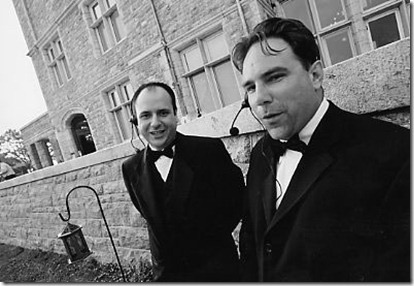In a recent newsletter, Mike Lombardi offers eight critical principles of leadership.
I love this list.
But I also believe that it’s not so much a list for leaders as it is for human beings. Anyone working in any organization should follow the tenets of this list, regardless of their position in the pecking order.
Knowledge, insight, and wisdom can and should come from every corner of any organization. People should feel empowered to provide it whenever necessary, regardless of their pay grade.
Leaders should seek this knowledge, insight, and wisdom whenever possible. The best leaders empower their people to assume the mantle of leadership whenever necessary.
I also think there is a tragic absence of leadership in so many organizations today – sometimes because those in charge are awful or cowardly people, but more often, I think, because leaders lack the skills, strategies, and self-awareness to be effective. They lack the training or desire to be trained to do the job well.
But despite this lack of leadership at the top, everyone should feel like they play a role in how an organization is run.
Several tents on Lombardi’s list make this clear, including:
1. Honesty without fear of confrontation.
Not only do I constantly and relentlessly provide feedback on everything I think needs improvement within the school district where I teach, but I always sign my feedback, even when it’s asked to be submitted anonymously, because, like Lombardi, I also believe in honesty without fear of confrontation, and I think everyone in an organization—designated leaders and otherwise—should, too.
Truthfully, I often wish for more confrontation. I’d love for someone to contact me about my feedback to gain clarity or even push back a little.
Also, the request for anonymous employee feedback acknowledges a lack of psychological safety in that organization, which is also a disaster.
2. Be direct, don’t pull punches, but don’t act in anger.
I strongly believe in this assertion. Don’t refrain from saying something, even if you think it will fall on deaf ears. Your professional integrity is at stake, and the Overton window only shifts when people are willing to say what others will not.
Admittedly, at least twice in the past two years, I have responded in anger, and both times, I regretted it afterward. I’m usually quite good at waiting to respond while upset, but when I’ve failed in this regard, my feedback has been counterproductive, caustic, and even offensive, so I need to do a better job at this.
Still, everyone in the organization should adhere to this tenet.
3. Set the standard, become the standard.
This can also be a goal for everyone in an organization, from the lowest rung of the ladder all the way to the top. Great role models and inspiring people can and should be found anywhere in an organization.
4. Don’t play favorites.
5. Remain confident with a sense of humility.
Arrogance sucks. Confidence is revered.
Threading that needle—regardless of your position in the organization—comes down to standing by your beliefs, fighting for what you think is right, and speaking with authority while also remaining open to criticism, open-minded to new ideas, willing to admit mistakes, and relentless in crediting others for their part in your success.
6. Blame no one.
7. Follow through on what needs to happen, don’t allow outside voices sway decisions.
Many will attempt to dissuade you from your beliefs and silence your voice when it’s inconvenient for them. That is when you must marshal your strength and be unwavering in your mission. Your inconvenient feedback is often needed most in an organization, even when others don’t want to hear it.
“It’s hard to be at the tip of the spear, but that is where you do the most damage.” – Matthew Dicks
8. Be bold. Be brave and be yourself.
Employers often specifically hire people who are bold, brave, and willing to be themselves. These qualities are perceived as positive by all but the monstrous megalomaniacs who demand deference and servitude. But even the best leaders sometimes forget the value of these qualities when faced with feedback and opposition that creates problems and discomfort.
But that is their failing and not your own. You must be bold and brave even when those around you wish you wouldn’t.










